Pakistan PM censures West amid looming no-confidence motion at home
Facing the biggest test of his eventful political career, Prime Minister Imran Khan has stepped up his criticism of the West as Pakistan’s parliament convenes on Friday to take up a no-trust motion against the embattled cricketer-turned-politician.
Pushed into a corner, the Pakistan Tehreek e Insaf (PTI) leader addressing a public rally in Punjab province last week lashed out at the Western countries for treating his country as their “slave”.
Referring to a recent request by diplomats of 23 countries, including EU member states, who called on Islamabad to support a resolution in the UN general assembly condemning Russia’s military operation in Ukraine, Khan said his country won’t be subservient to the West.
Khan decried the European envoys for asking Pakistan to condemn Russia for the Ukraine invasion.
He denounced the West for never having “acknowledged Pakistan’s support in the war against terror, which claimed 80,000 lives and caused other collateral damage”.
“Are we slaves to act according to your wishes?” he asked at the rally in Mailsi town of Vehari district.
Khan, who has developed a closer relationship with Russia’s Vladimir Putin in defiance of the West, visited Moscow hours before Putin announced a military operation in the former South republic last month.
His country also chose not to condemn Russia’s military operation in Ukraine in the UN general assembly session, in a show of solidarity with the all-weather-ally.
Khan’s severe criticism of the West comes at a time of deepening political crisis at home, with his government facing intense domestic scrutiny for not managing the economy well.
The PTU leader’s opponents have accused him of poor governance and economic incompetence amid soaring inflation and political instability, saying that the embattled premier seeks to bolster domestic support and win back dissident PTI lawmakers.
There is also a growing perception that Pakistan’s military establishment does not appear to be interested in managing Khan’s political battles any longer.
Pakistan’s military, which yields considerable influence in the country, is considered by many as largely responsible for Khan’s landslide election win in 2018.
An armed forces spokesperson, however, distanced the military from the no-trust vote against Khan.
“I have said it earlier that the army has nothing to do with politics. It is better for all of us to avoid unnecessary speculation on this matter,” the spokesperson was quoted as saying by Guardian.
On Monday, Foreign Minister Shah Mahmood Qureshi told a press conference that he had intelligence that the vote of no-confidence against Khan was happening at the behest of western powers.
“I have more information than this,” Qureshi said, adding that he would only reveal it once he had the green light from the prime minister himself.
Pakistan’s human rights minister, Shireen Mazari, in a tweet, which was later deleted, accused the opposition of using “external powers for their devious games”.
Michael Kugelman, a senior associate for South Asia at the Wilson Centre, was quoted as saying by Guardian that it made “good political sense for Khan to ramp up the anti-west rhetoric”, which would be likely to fire up his support base, who are widely mistrustful of the west, particularly the US.
“If he loses power, he can blame the west and use that as a rallying cry to draw support to prepare for a fresh bid at power,” said Kugelman. “And if he stays in power, he can boast that he defied the west’s efforts to undermine him and use that as momentum to push toward getting elected to a second term.”
The lower house of Pakistan’s parliament will deliberate on the opposition's no-confidence resolution against Khan on 25 March. Once the motion is formally taken up by the house, the voting should be held between three to seven days.
In the 342-member Pakistan National Assembly, the opposition needs 172 votes to topple Khan, the cricketer-turned-politician.
The PTI has 155 members in the House and needs at least 172 lawmakers on its side to remain in the government. The party has the support of 23 members belonging to at least six political parties.
Nearly two dozen dissident lawmakers of the ruling party came out recently ahead of voting on the no-confidence motion against Khan, with the government accusing opposition parties of horse-trading.
The opposition party claims that it has the backing of at least 20 lawmakers from the ruling party and its allies which could defeat Khan in a vote, currently scheduled for 25 March.
Last July, Khan had questioned the United States’ rationale behind the invasion of Afghanistan in 2001 by stressing that the Americans “really messed it up in Afghanistan.”
“I think the US has really messed it up in Afghanistan,” Khan said in an interview with PBS News.
His position, especially on the US botched mission in Afghanistan, has not gone down well with the West, which many observers believe could be the reason for his domestic crisis, engineered by the US and its allies.
VIDEO | Paris protesters call for release of Palestinian abductees
VIDEO | Protesters in Baghdad stand with Iran, reject foreign violence
VIDEO | Iran's Leader: US must be held accountable for orchestrating violence in Iran
UAE’s state oil company weighs major investment in Venezuela’s gas: Report
Trump launches sweeping clemency offensive, pardoning allies, donors, repeat fraudsters
Iraqi army assumes full control of Ain al-Asad airbase after complete US withdrawal
VIDEO | Trump main culprit of acts of terror in Iran
Iran restores SMS access, eases curbs on domestic messengers


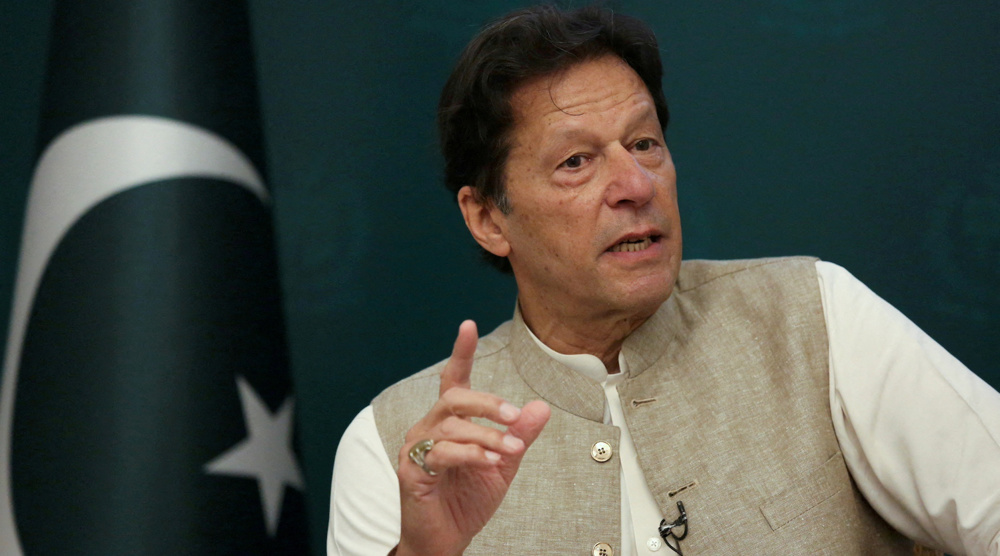
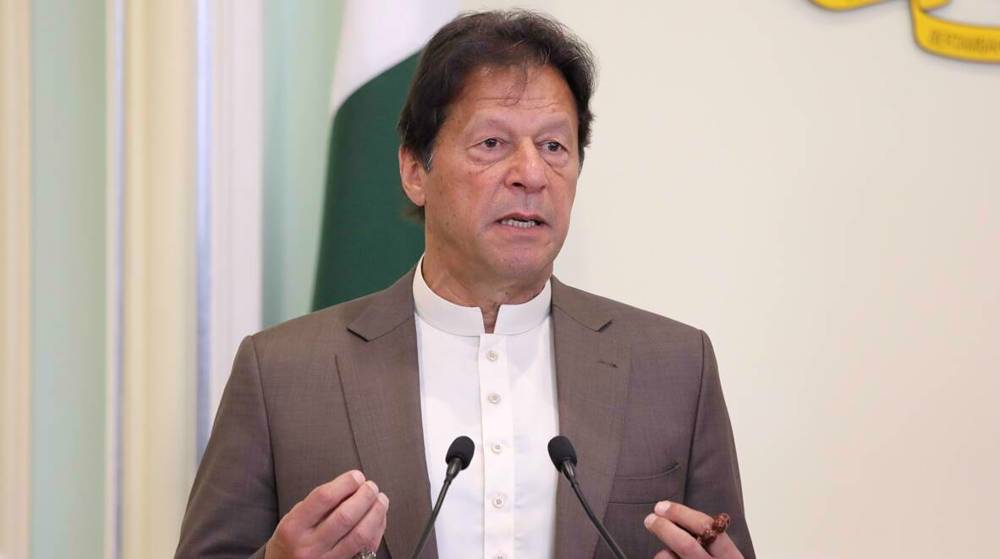
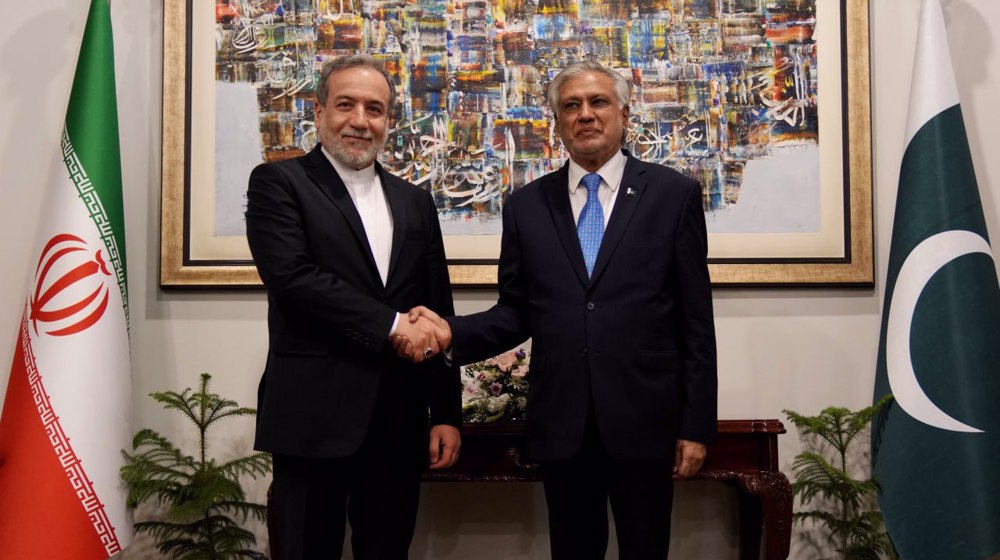
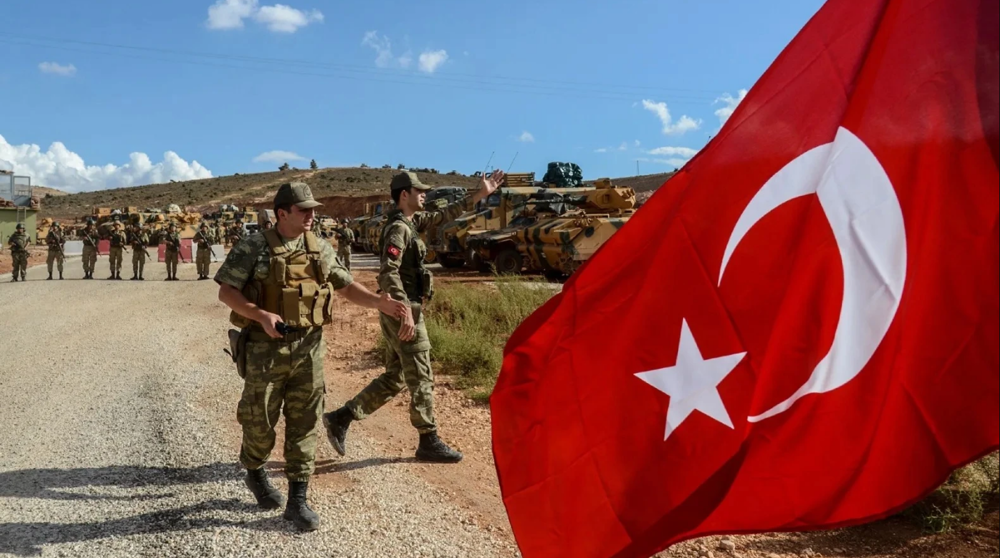
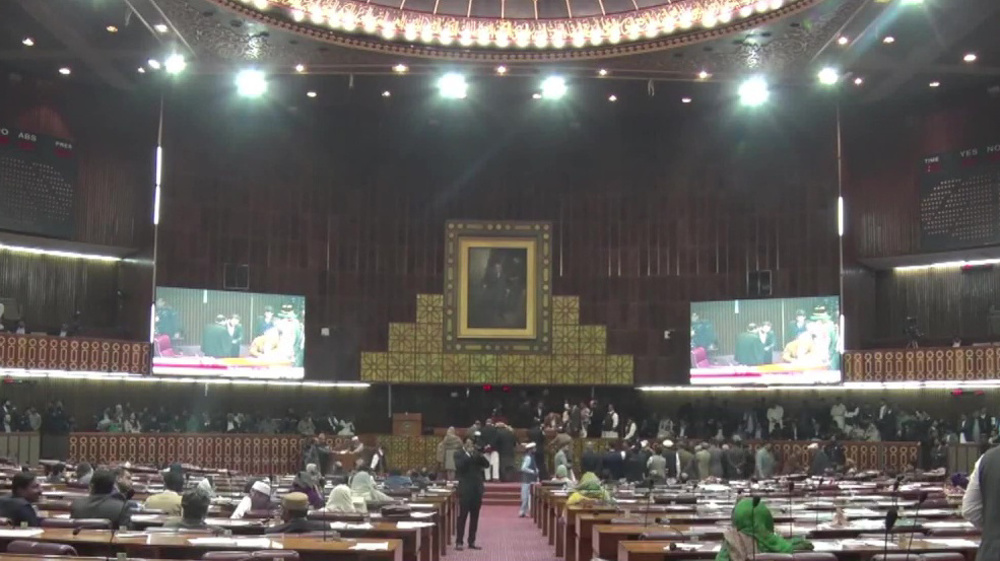



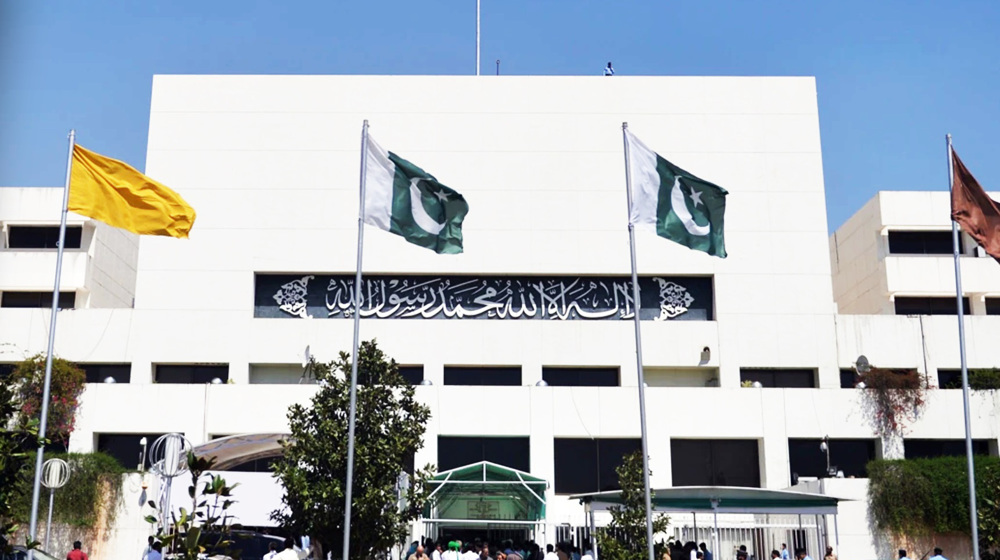
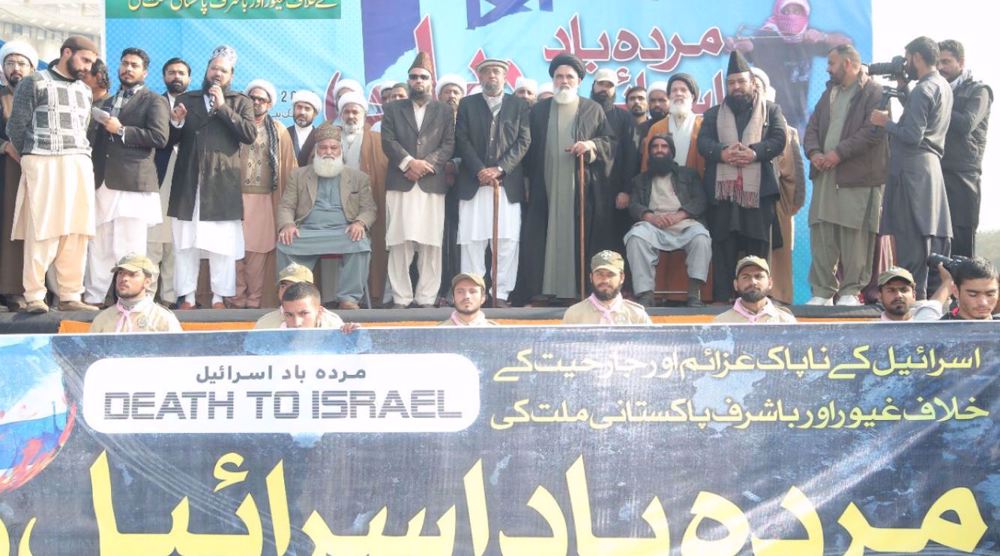
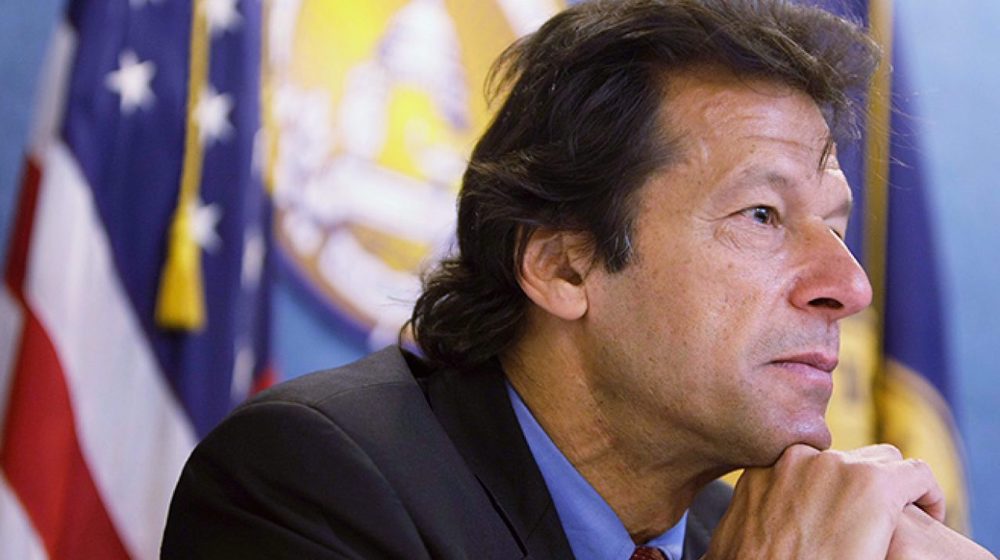

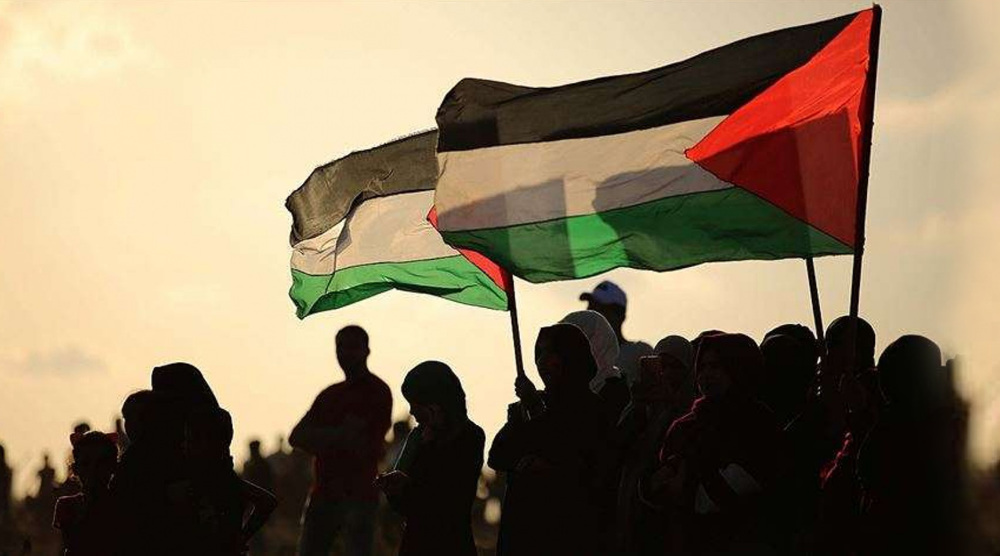

 This makes it easy to access the Press TV website
This makes it easy to access the Press TV website